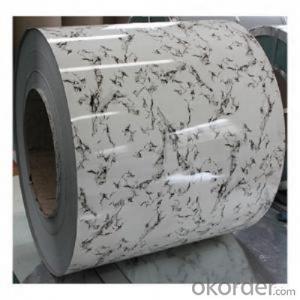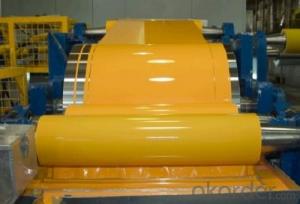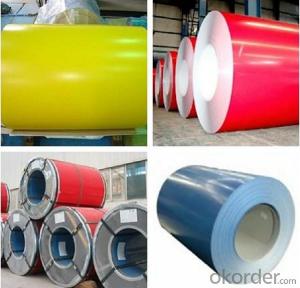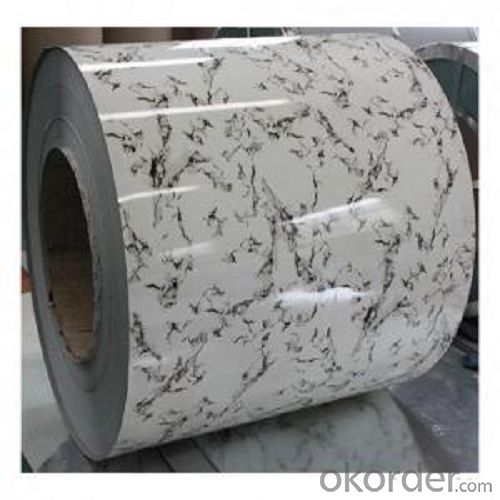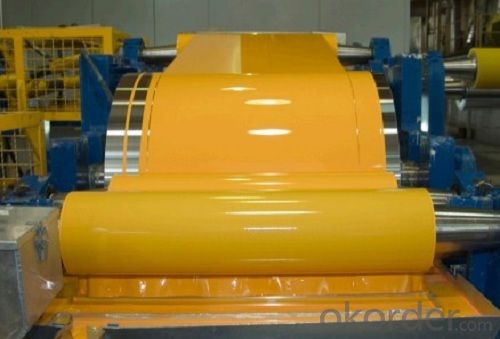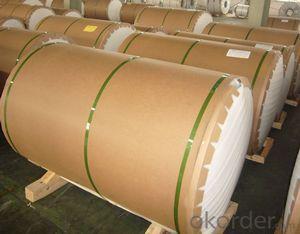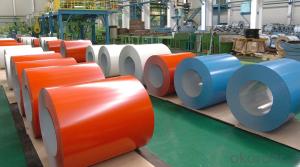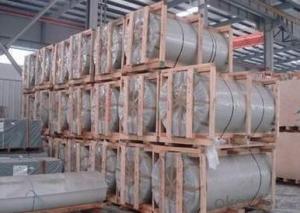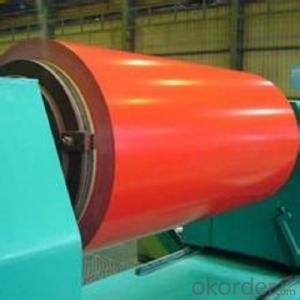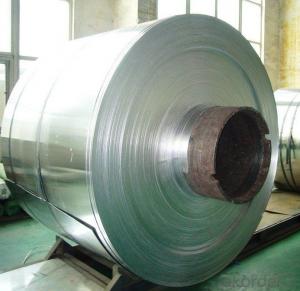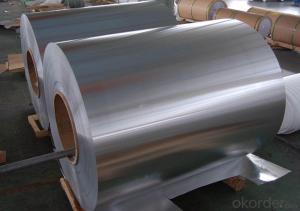1050 1060 Decorative Color Coated Aluminum Coil Slitting Machine
- Loading Port:
- Shanghai
- Payment Terms:
- TT OR LC
- Min Order Qty:
- 5 m.t.
- Supply Capability:
- 5000 m.t./month
OKorder Service Pledge
OKorder Financial Service
You Might Also Like
l Specifications of 1050 1060 decorative color coated aluminum alloy coil
Brand | CMAX | |
Alloy | 1100, 1235, 3003, 3004, 3005, 3105, 5005, 5052, 8011 | |
Thickness | 0.2mm~200mm | |
Width | 40mm -1500mm | |
MOQ | 5T | |
Coating finish | PVDF, POLYESTER, NANO, BRUSHED | |
Color | As to code RAL | |
Surface | Embossed, Mill Finish, Coated | |
Gloss | 10-90% (EN ISO-2813:1994) | |
Total coating thick | PVDF 25 micron | |
Polyester 18micron (EN ISO-2360:1995) | ||
Coating hardness | 2H | |
Adhesion | 5B (EN ISO-2409:1994) | |
Impact resistance | No cracking and peeling (A.S.T.M D2794-1993) | |
Flexibility (T-bend) | 0T- 2T | |
MEK resistance | 100 | |
Usuage | Exterior applications | wall cladding, facades, roofs and canopies, tunnels, |
Interior applications | wall cladding, ceilings, bathrooms, kitchens and | |
Advertisement and market applications | display platforms, signboards, and shop fronts | |
Coil's standard diameter | 1100mm | |
Coil's standard weight | 2000kg | |
Botton side aluminium sheet is coated with protective polyester material, thickness more than 6 micron | ||
l Packaging & Delivery
Packaging detail: Standard seaworthy exporting carton, Wooden pallets, waterproof paper and plastic coverage or as customer's requirements
Delivery detail: about 25 days from received original L/C or advanc payment
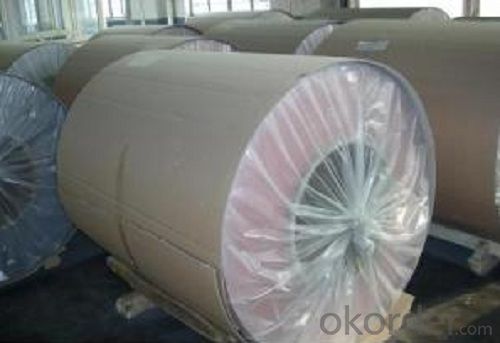
l Company Profile
CNBM International Corporation, China National Building Materials (Group) Corporation, is one of the largest companies in China building material & equipment industry, with 42,800 employees and sales in 2005 of US Dollar 4.395 billion. In 2006, China National Building Material Company Limited was listed on Hong Kong Stock Market with the stock code as 3323.
Color Coated Aluminum Coil is a popular product supplied by CNBM. With advanced technology and equipment, our company is ready to meet any of your requirements.
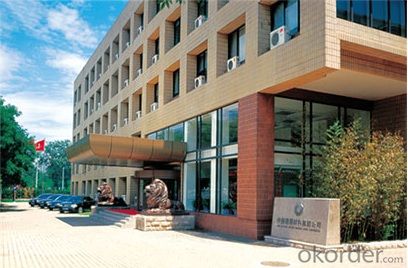
l Product Images
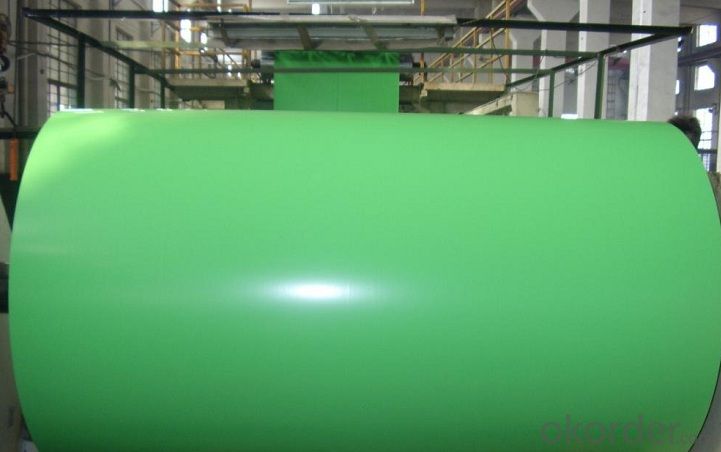
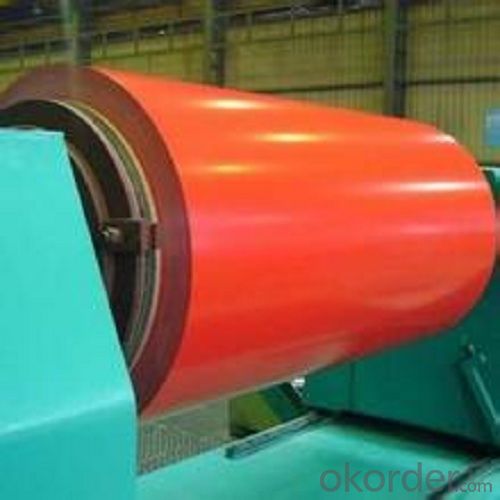
l FAQ
Q: Do you provide free samples?
A: Yes, free samples will be sent to you on freight at destination.
Q: Can I get your latest products catalogue?
A: Yes, it will be sent to you in no time.
Q: What is the MOQ?
A: 5 tons
Q: What are your payment terms?
A: We accept L/C, T/T.
l Contact us
Email:service@okorder.com
- Q: Can aluminum coils be used in agricultural applications?
- Aluminum coils are suitable for agricultural applications. They offer numerous benefits for agricultural purposes due to their versatility and lightweight nature. In the agricultural industry, aluminum coils are commonly utilized in greenhouse frames, irrigation systems, and grain storage bins. The resistance to corrosion is one of the key advantages of aluminum coils in agricultural applications. Aluminum is naturally resistant to rust and can withstand exposure to moisture, chemicals, and other elements commonly found in agricultural environments. As a result, it is a durable and long-lasting choice for agricultural equipment that needs to endure harsh conditions. Moreover, aluminum coils have excellent thermal conductivity, allowing them to efficiently transfer heat. This property makes them ideal for heat exchangers, which are frequently used in agricultural machinery like tractors and combine harvesters. Efficient heat transfer helps maintain optimal operating temperatures and enhances overall equipment performance. Additionally, the lightweight nature of aluminum coils makes them easy to handle and transport. This is particularly advantageous in agricultural applications where equipment needs to be frequently moved, such as portable irrigation systems or lightweight structures. The lightweight nature of aluminum also aids in reducing fuel consumption in machinery, leading to cost savings and environmental benefits. Furthermore, aluminum is a non-toxic material, ensuring its safety in agricultural applications. It does not release any harmful chemicals or leach into the soil, thus keeping crops uncontaminated and safe for consumption. In conclusion, aluminum coils are a reliable and efficient choice for various agricultural equipment and structures. Their corrosion resistance, thermal conductivity, lightweight nature, and non-toxic properties contribute to increased productivity and sustainability in the agricultural industry.
- Q: Are aluminum coils suitable for electrical conductors?
- Yes, aluminum coils are suitable for electrical conductors. Aluminum is a good conductor of electricity, second only to copper in terms of conductivity. It is widely used in various electrical applications, including power transmission lines, wiring, and electrical coils. Aluminum coils offer excellent electrical conductivity while also being lightweight, cost-effective, and resistant to corrosion.
- Q: What are the different coil pattern options for aluminum coils?
- Aluminum coils offer diverse coil pattern options to cater to specific applications and desired aesthetics. Here are some commonly used patterns: 1. Stucco Pattern: This option imitates the appearance of stucco with a textured, raised surface. It offers durability and a non-slip surface, making it suitable for outdoor surfaces and flooring. 2. Diamond Pattern: Featuring small diamond-shaped embossed designs, this pattern provides an attractive and slip-resistant surface. It finds applications in stair treads, walkways, and decorative panels. 3. Wood Grain Pattern: This pattern replicates the natural wood grain, making it an appealing choice for architectural and interior design purposes. It is commonly used in wall cladding, ceiling panels, and furniture. 4. Checkered Pattern: Also known as the checker plate pattern, it showcases a grid of raised diamonds or squares. This pattern offers excellent slip resistance and finds utility in safety-focused applications like ramps, industrial flooring, and staircases. 5. Plain Smooth Pattern: This versatile pattern has a flat, smooth surface without any embossed designs. It suits various applications such as roofing, gutters, and general fabrication. 6. Ribbed Pattern: Consisting of parallel lines or ribs along the coil's length, this pattern provides enhanced strength and rigidity. It is commonly used in truck bodies, trailers, and industrial equipment. These examples highlight the array of coil pattern options available for aluminum coils. The appropriate pattern selection depends on project-specific requirements, including functionality, durability, and aesthetic preferences.
- Q: Are there any limitations on the powder coating of aluminum coils?
- Yes, there are some limitations on the powder coating of aluminum coils. One limitation is the size and shape of the coil, as certain complex shapes may be difficult to coat evenly. Another limitation is the thickness of the coating, as excessive thickness can lead to cracking or peeling. Additionally, the presence of any surface contaminants or oils can affect the adhesion and quality of the powder coating. Proper surface preparation is crucial to overcome these limitations and achieve a durable and high-quality coating on aluminum coils.
- Q: I wrap everything with aluminum foil and bake it in the oven -- fish, meat, vegetables. Is this really safe? Or safe when done occasionally? Or should I find a new way?
- Is Aluminum Foil Safe
- Q: What's the difference between an aluminum alloy strip and an aluminum coil?
- The specifications are different. Generally speaking, the aluminum strips are of small size, and the aluminum rolls are of large size
- Q: Can aluminum coils be used in the production of aluminum composite panels?
- Yes, aluminum coils can be used in the production of aluminum composite panels. Aluminum coils are commonly used as the main material for manufacturing aluminum composite panels, which consist of a core sandwiched between two layers of aluminum. The coils are processed to form flat sheets that are then coated, bonded, and pressed together to create the final panel. The use of aluminum coils in this process allows for efficient production and ensures the panels have a durable and lightweight structure.
- Q: Can aluminum coils be used for food storage containers?
- Yes, aluminum coils can be used for food storage containers. Aluminum is a popular choice for food storage containers due to its many beneficial properties. It is lightweight, durable, and has excellent thermal conductivity, meaning it can evenly distribute heat for efficient cooking or cooling. Additionally, aluminum is non-toxic, odorless, and resistant to corrosion, making it a safe option for storing food. It also provides an effective barrier against light, moisture, and oxygen, which helps to preserve the freshness and quality of the stored food. Overall, aluminum coils can be a reliable and practical choice for food storage containers.
- Q: How can aluminium ingots be processed into aluminium coils (aluminium sheets)?
- This depends on what kind of ingot, and if it is small, it needs to be melted into a furnace, cast into a large plate, and then rolled on a mill
- Q: What are the necessary safety measures to be taken while handling and using aluminum coils?
- <p>When using aluminum coil, safety precautions include wearing appropriate personal protective equipment such as gloves and safety glasses to prevent cuts and eye injuries. Ensure good ventilation to avoid inhaling aluminum dust or fumes. Keep the work area clean and free from clutter to prevent tripping hazards. Use proper tools to handle the coils to avoid strain or injury. Be cautious of electrical hazards if the aluminum coil is being used in conjunction with electrical equipment. Always follow the manufacturer's guidelines for safe operation and storage of aluminum coils.</p>
Send your message to us
1050 1060 Decorative Color Coated Aluminum Coil Slitting Machine
- Loading Port:
- Shanghai
- Payment Terms:
- TT OR LC
- Min Order Qty:
- 5 m.t.
- Supply Capability:
- 5000 m.t./month
OKorder Service Pledge
OKorder Financial Service
Similar products
Hot products
Hot Searches
Related keywords
